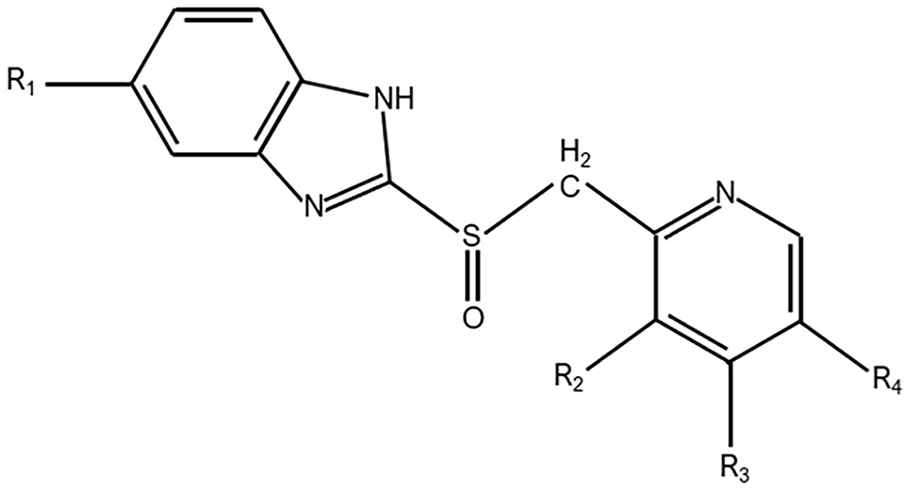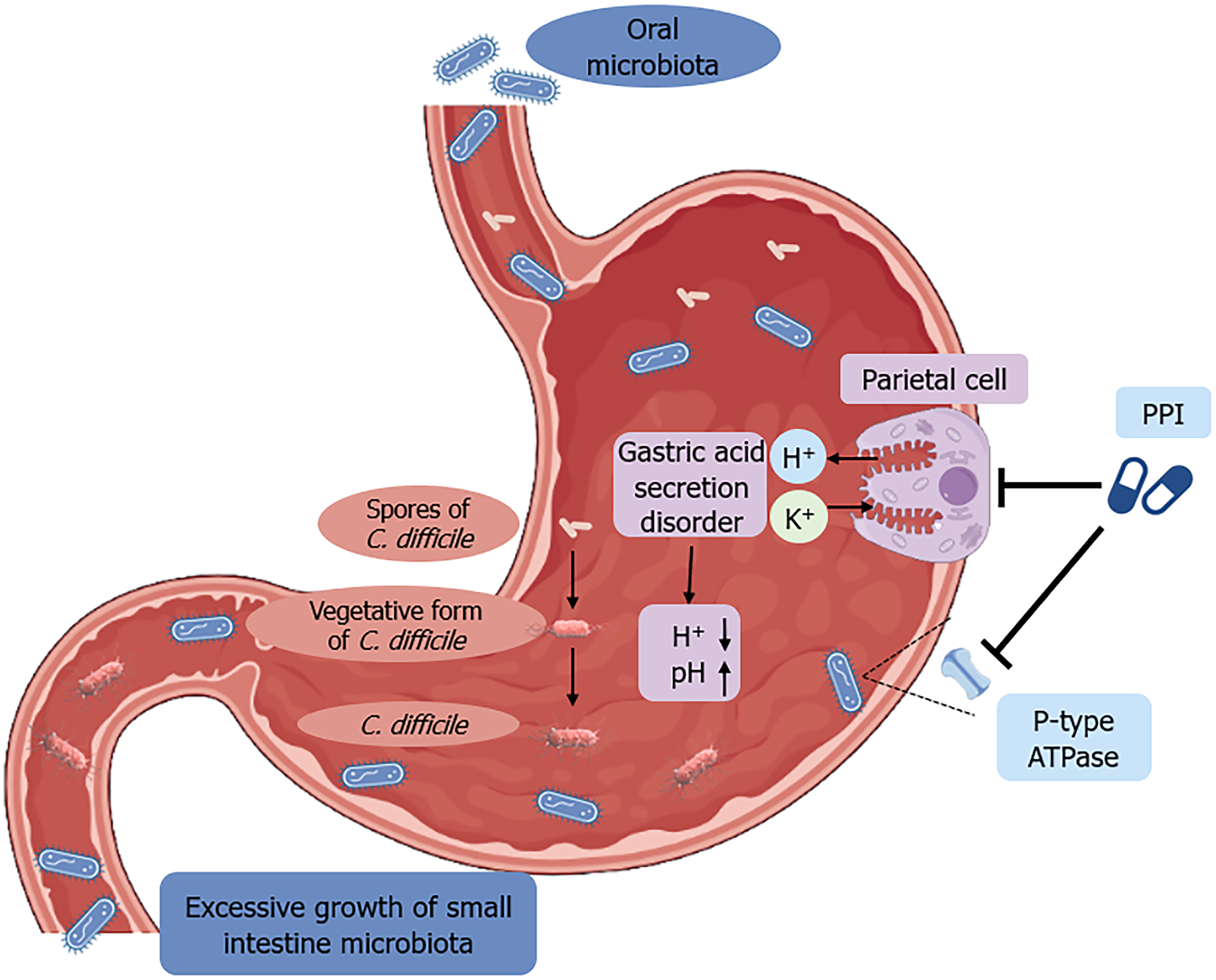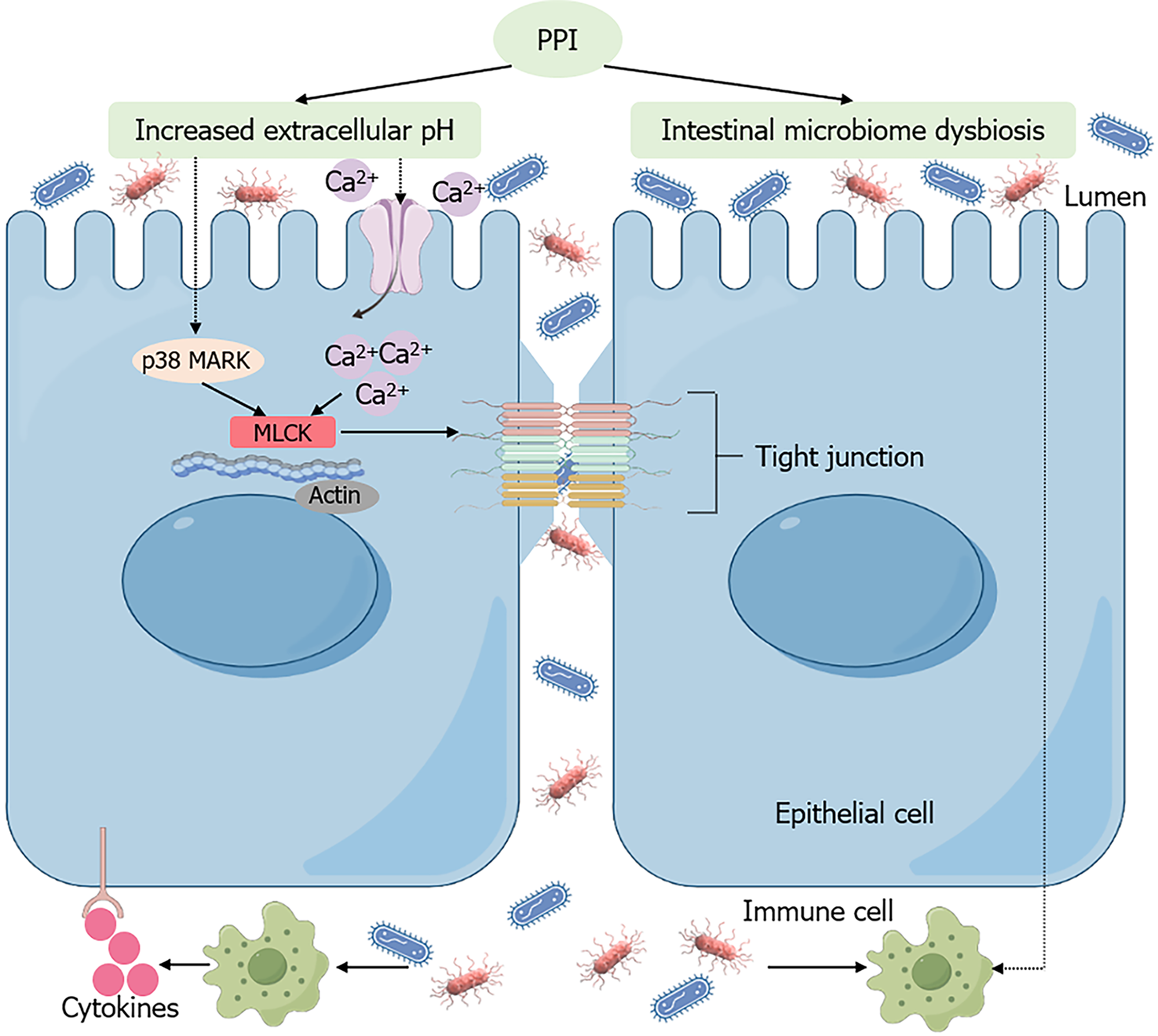©The Author(s) 2024.
World J Gastroenterol. Jun 7, 2024; 30(21): 2751-2762
Published online Jun 7, 2024. doi: 10.3748/wjg.v30.i21.2751
Published online Jun 7, 2024. doi: 10.3748/wjg.v30.i21.2751
Figure 1 Mother nucleus structure of proton pump inhibitors.
Omeprazole (R1: OCH3, R3: OCH3, R2R4: CH3), lansoprazole (R1: H, R3: CF3CH2O, R2R4: CH3), pantoprazole (R1: F2CHO, R2R3: CH2O, R4: H), rabeprazole (R1R4: H, R2: CH3, R3: CH3-O-CH2-CH2-CH2O), ilaprazole (R1: pyrrole, R2: CH3, R3: OCH3, R4: H). Esomeprazole is the S-isomer of omeprazole and dexlansoprazole is the R-isomer of lansoprazole.
Figure 2 Impact of proton pump inhibitors on the gastrointestinal microbiota.
Proton pump inhibitors (PPIs) inhibit gastric acid secretion by irreversibly binding to H+/K+ ATPase in gastric parietal cells. An increased pH level facilitates the migration of bacteria from the oral cavity to the intestinal lumen and promotes excessive growth of small intestinal bacteria, exacerbating the imbalance of the intestinal microbiota. PPIs can also directly affect the gastric microenvironment by attacking the P-type ATPase of some bacteria. Additionally, a high gastric pH caused by PPIs can facilitate the survival of the vegetative form of Clostridioides difficile (C. difficile), enhance the survival of germinated spores in the stomach, and increase the number of actively dividing C. difficile cells colonizing the intestinal tract. This PPI-induced dysbiosis of the microbiota may contribute to the occurrence and progression of inflammatory bowel disease. C. difficile: Clostridioides difficile; PPI: Proton pump inhibitor.
Figure 3 Impact of proton pump inhibitors on the intestinal mucosal barrier.
Proton pump inhibitors (PPIs) can increase the permeability of the intestinal tight junction (TJ) by activating myosin light chain kinase (MLCK). Increased extracellular pH induced by PPIs activates and upregulates MLCK expression via p38 MAPK. PPIs may promote an increase in intracellular calcium concentration, which also plays a crucial role in MLCK activation. Additionally, the PPI-induced increase in pH may increase the number of Gram-negative bacteria and cause dysbiosis of the intestinal microbiome, resulting in increased intestinal permeability. The intestinal microbiota translocases through the TJ and stimulates the immune system to induce or exacerbate inflammatory bowel disease. PPI: Proton pump inhibitor; MLCK: Myosin light chain kinase.
- Citation: Liang Y, Meng Z, Ding XL, Jiang M. Effects of proton pump inhibitors on inflammatory bowel disease: An updated review. World J Gastroenterol 2024; 30(21): 2751-2762
- URL: https://www.wjgnet.com/1007-9327/full/v30/i21/2751.htm
- DOI: https://dx.doi.org/10.3748/wjg.v30.i21.2751















